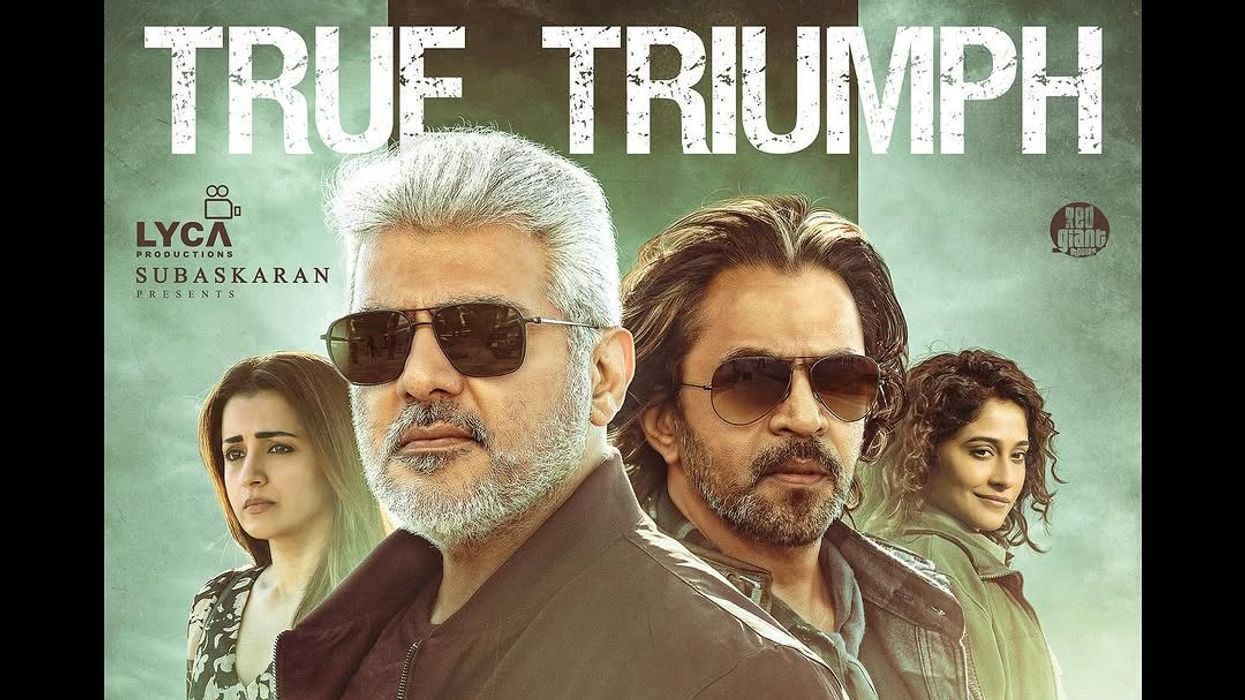Ajith Kumar’s Vidaamuyarchi, directed by Magizh Thirumeni, has sparked a mixed bag of contrasting reactions since hitting theatres. The film attempts to fuse the nerve-wracking tension of Hollywood thrillers with the high-energy appeal of Tamil cinema, resulting in what can be called a cinematic cocktail that’s as intriguing as it is polarising. While many viewers praise its departure from formulaic storytelling, others find its execution uneven and even overly ambitious.
The praise
Many reviewers have applauded Vidaamuyarchi for breaking away from the typical “mass hero” template that we saw in Ajith’s recent films like Valimai and Thunivu. Gone are the days of over-the-top family sentiments, forced comedy, and preachy dialogues. Vidaamuyarchi opts for a slower, more atmospheric narrative, drawing comparisons to Western thrillers. The deliberate pacing, though again divisive, has been commended for its ability to build tension and offer a refreshing change from the usual high-octane Tamil blockbusters.
Ajith’s on-screen dynamic with Trisha Krishnan and their emotionally layered relationship, woven through fragmented flashbacks, adds depth to the storyline. The non-linear approach may not be everyone’s cup of tea, but it undeniably brings a certain poetic touch.
Again, not everyone is on board with the film’s structural choices. Some critics argue that Vidaamuyarchi struggles to reconcile its Hollywood-inspired sensibilities with the larger-than-life expectations of Tamil cinema. Ajith’s character, Arjun, a former cop-turned-affluent businessman, seems torn between being a vulnerable everyman and an indestructible action hero. Viewers found the inconsistency distracting, making it hard to invest in his struggle.
While some viewers find the “flashback within a flashback” structure intriguing, others feel it creates unnecessary confusion. The constant withholding of key information has been criticised as more gimmicky than impactful, with some suggesting that a simpler narrative approach might have just worked better.
Antagonists and action
The antagonists, played by Arjun Sarja and Regina Cassandra, have stood out to a lot of viewers. Arjun Sarja, in particular, has been appreciated for his commanding screen presence and ability to match Ajith’s intensity. Regina’s character, though complex, has been criticised for being underutilised, leaving viewers wanting more.
- YouTubeyoutu.be
The action sequences have also received divided opinions. While some appreciate the slick execution and dystopian visuals, others feel certain scenes, like the darkly humorous home invasion sequence, feel out of place in an otherwise serious thriller. One undisputed highlight, though, is Om Prakash’s cinematography. The stark, desolate landscapes of Azerbaijan give the film a gritty, immersive quality that adds to its moody appeal.
The verdict
Vidaamuyarchi is a film that dares to be different, and for that, it deserves recognition. For Ajith fans, this is a welcome deviation from the norm, proving that he’s willing to experiment with his on-screen persona. For others, it’s a film that flirts with brilliance but maybe doesn’t fully embrace it. As the industry continues to explore global influences, Vidaamuyarchi is like a lesson in both the potential and pitfalls of such ambitious experimentation.





